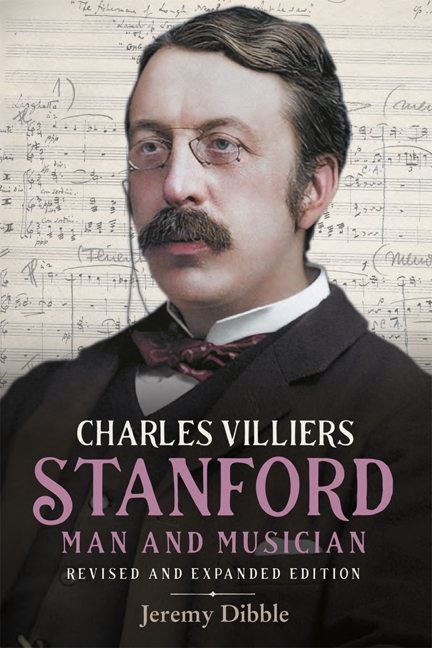Book contents
- Frontmatter
- Dedication
- Contents
- List of Illustrations
- List of Music Examples
- List of Analytical Tables
- Preface and Acknowledgements
- Supplementary Introduction to the Revised and Expanded Edition
- List of Sigla and Abbreviations
- I Early Influences and Impressions, 1852–70
- II Formative Years, 1870–87
- III Recognition, 1888–1901
- IV The New Generation, 1901–14
- V War and Decline, 1914–24
- Appendix: List of Works
- Select Bibliography
- Index of Works
- General Index
- Irish Musical Studies Previous volumes
1 - Dublin, Family and Friends
Published online by Cambridge University Press: 12 May 2024
- Frontmatter
- Dedication
- Contents
- List of Illustrations
- List of Music Examples
- List of Analytical Tables
- Preface and Acknowledgements
- Supplementary Introduction to the Revised and Expanded Edition
- List of Sigla and Abbreviations
- I Early Influences and Impressions, 1852–70
- II Formative Years, 1870–87
- III Recognition, 1888–1901
- IV The New Generation, 1901–14
- V War and Decline, 1914–24
- Appendix: List of Works
- Select Bibliography
- Index of Works
- General Index
- Irish Musical Studies Previous volumes
Summary
A town mouse I was born and bred, and the town which sheltered me was one likely to leave its mark upon its youngest citizens, and to lay up for them vivid and stirring memories. Dublin, as I woke to it, was a city of glaring contrasts. Grandeur and squalor lived next door to each other, squalor sometimes under the roof of grandeur. Society, ‘The Quality’ as the Irishman calls it, had deserted its centre and made its home in the outskirts: houses of perfect architectural proportions had become tenements; Adam's ceilings and Angelica Kauffman's designs looked down upon squalling families in rags and tatters. The hall where Handel conducted the first performance of the ‘Messiah’ had become a low theatre. The two old cathedrals stood in a region compared to which the Seven Dials was a Paradise. But the well-to-do classes, who had turned their faces outwards, had built up a town which, if it had its usual quota of dull featureless streets, was not wanting in a good sprinkling of private houses of artistic merit, and in open spaces and squares of a beauty quite unique in this country.
Stanford's recollections of his home-town, written and published over sixty years after his birth, depict a city of social deprivation, class disparity and former Georgian affluence. In the first fifty years of the nineteenth century, Dublin had undergone considerable change in terms of its social and political geography. With the Act of Union in 1801, the sudden loss of 271 peers and 300 members of the Irish house of commons made itself felt both socially and economically as the city lost its status as parliamentary capital of Ireland. Many wealthy Protestant families of the nobility and gentry migrated for London; those that stayed invariably left their elegant eighteenth-century homes in the city and moved to the southern suburbs such as Rathmines and Pembroke. The Catholic middle classes, who also supported the notion of the Union, believed they might gain emancipation. As a result, areas in the centre of Dublin such as Summerhill and Dominick Street ‘passed from quality to vacancy and then on to tenement’. Large houses, requiring the wealth of an aristocrat to maintain them, lay outside the limited resources of Dublin's middle classes and so fell into decay. Others survived owing largely to their being bought up by religious orders or other institutions.
- Type
- Chapter
- Information
- Charles Villiers StanfordMan and Musician, pp. 3 - 19Publisher: Boydell & BrewerPrint publication year: 2024

